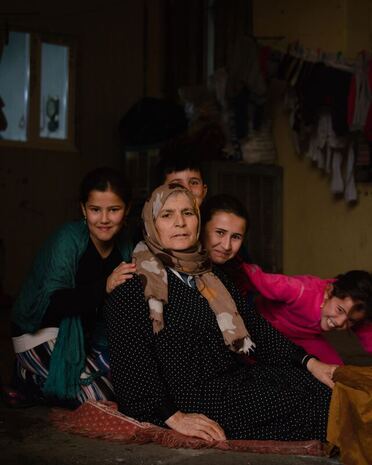CELEBRATING
|
This World Refugee Day, our theme is multiculturalism. Every refugee is a unique individual, with their own heritage, culture, diversity and strengths. This is something often portrayed as a threat to populations, termed an 'invasion' by some. But to us, it is a celebration of life - something to enjoy, to learn from, and to include.
This Refugee Day, join us in our commitment to celebrating our global society of different cultures, ethnicities and heritages. Join our commitment to multiculturalism. |
MULTICULTURALISM & REFUGEESWherever refugees move, they carry with them their identity and cultural values. Since many of them hope to return to their homes one day, it is extremely important for them to maintain this connection to home. Even for those who do not return home, it forms a vital part of who they are and provides meaning and solace. Nevertheless, they can face prejudice, discrimination and difficulties forming connections with locals when they arrive in a host country with different cultural norms and practices. Often, this is as a result of misunderstanding about the culture of refugees on the part of the locals and a lack of knowledge about the host culture on the part of the refugees.
WHY SHOULD I CARE?It is a genuine and important worry which refugees have. It will affect their daily lives and ability to live, work and be happy in the host country. Appreciating and understanding their culture means we can limit the difficulties associated with integrating refugees into a host community. As a result, we can improve the chances of mutual understanding and avoid the negative consequences of cultural backlash.
The cultural concerns of refugees are often neglected when discussing this topic. The economic implications and immediate concerns about security and food take priority. Whilst this is necessary, refugees are people with cultural identities that matter to them. Discourse should incorporate all of these elements. Otherwise, refugees cannot be appropriately supported and any economic concerns about them simply translate into ones based on identity. This is harmful and counterproductive. |
HOW TO SUPPORT THE INCLUSION OF REFUGEES
Being inclusive & multicultural is not a difficult task. By doing the following things, you can help to change a refugee's life forever by making them feel welcome after fleeing war, persecution or violence. Their lives have been turned upside down, by no fault of their own - show refugees you care.
Respect & celebrate refugees' cultures |
Learn from the diversity they bring. Many refugees come to host nations and bring their food, language, arts, dances, and heritage with them - all of which can be of benefit. For example, fish and chips (an iconic British dish) was originally brought to the UK by refugees
|
Provide refugees the space to carry out their culture |
Refugees may have a different way of life to the majority of citizens in their host nations. This is in no way a 'threat' - provide refugees with protected spaces to carry out their way of life, and inclusively integrate them into local culture to make them feel welcome
|
Find cultural connections |
Everyone can share with each other. Find commonalities and areas that unite refugees and populations as human beings, and celebrate differences.
|
Provide adequate education to refugees for community inclusion |
Educating refugees about important local customs and norms can help them integrate better, and feel like welcome members of society. Provision of education for children & youth should also be made to avoid isolation and feelings of difference, as well as providing for their growth & development.
|
OUR FOUNDER'S
|
|

